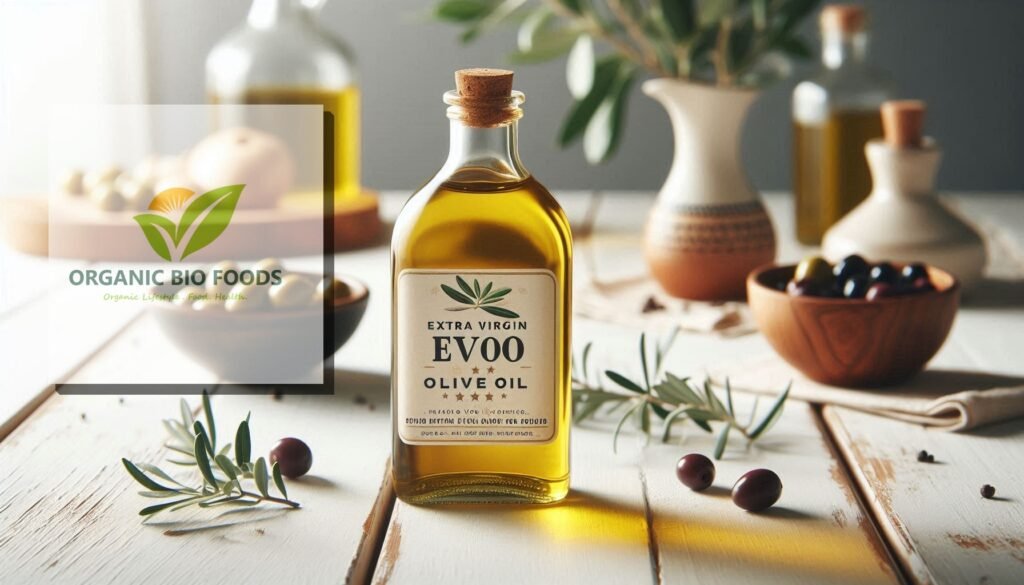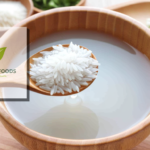Olive oil has been a staple in Mediterranean diets for thousands of years, but its popularity has spread worldwide for good reason. This golden liquid, derived from the pressing of olives, is rich in healthy fats and nutrients that have been shown to offer several health benefits. From improving heart health to reducing inflammation, olive oil is not only a tasty addition to your meals but also a powerful contributor to a healthy lifestyle.
In this post, we will break down what olive oil is and explore six key health benefits of this versatile oil.
What is Olive Oil?
Olive oil is made from the pressing of fresh olives, which are the fruit of the olive tree (Olea europaea). The process of extracting oil from olives can vary, resulting in different types of olive oil. The most common types you’ll encounter are:
- Extra Virgin Olive Oil (EVOO): This is the highest quality olive oil. It’s made from cold-pressed olives, meaning the oil is extracted without heat, which helps retain its natural flavors and nutrients. EVOO has a distinct taste, with a bit of a peppery or fruity flavor.
- Virgin Olive Oil: This is also made from cold-pressed olives but has a slightly higher acidity level compared to EVOO. It’s still a good-quality oil, though not as flavorful as extra virgin.
- Refined Olive Oil: This is made by refining virgin olive oils to remove impurities. The process often involves heat and chemicals, which can strip away some of the beneficial compounds found in the oil.
- Pure Olive Oil: This is a blend of refined and virgin olive oils. While it’s still olive oil, it lacks the distinct taste and health benefits that come with EVOO.
The process of making olive oil has been used for centuries, especially in regions like Greece, Spain, and Italy, where olive trees thrive. Today, olive oil is enjoyed globally for its culinary versatility and its numerous health benefits.
Health Benefits of Olive Oil
Olive oil is rich in monounsaturated fats, particularly oleic acid, which makes up about 73% of its fat content. It also contains a variety of antioxidants and anti-inflammatory compounds, making it one of the healthiest oils you can include in your diet. Here are six key health benefits of olive oil:
1. Rich in Antioxidants
Extra virgin olive oil, in particular, is packed with powerful antioxidants, including polyphenols and vitamin E. These antioxidants help protect your cells from oxidative damage caused by free radicals, which are unstable molecules that can harm cells and lead to chronic diseases like cancer.
How It Helps: Antioxidants play a vital role in reducing inflammation and oxidative stress, which are both linked to the development of chronic diseases. Regular consumption of antioxidant-rich foods, like olive oil, helps your body fight off harmful free radicals and maintain cellular health .
2. May Improve Skin Health
The healthy fats and antioxidants in olive oil aren’t just good for your internal organs—they can also benefit your skin. Olive oil contains vitamin E, which helps protect the skin from oxidative damage, keeping it looking healthy and youthful.
In addition, the monounsaturated fats in olive oil help keep your skin moisturized from the inside out. This can improve your skin’s texture and appearance, making it smoother and more elastic .
How It Helps: Regular consumption of olive oil can help maintain skin hydration, protect against sun damage, and reduce signs of aging. It’s a natural way to support skin health without relying on synthetic products.
3. Reduces Inflammation
Chronic inflammation is believed to be one of the main drivers of many diseases, including heart disease, cancer, and arthritis. Olive oil contains several compounds, including oleocanthal, that have been shown to reduce inflammation in the body.
Oleocanthal acts similarly to ibuprofen, a common anti-inflammatory drug, by inhibiting inflammatory enzymes. This makes olive oil a natural way to combat inflammation and reduce your risk of developing inflammatory diseases .
How It Helps: By reducing inflammation, olive oil helps protect your body from the damage caused by long-term, low-grade inflammation. This, in turn, can lower your risk of chronic conditions like heart disease, diabetes, and even some cancers.
4. Supports Heart Health
One of the most well-known benefits of olive oil is its ability to support heart health. Olive oil is a rich source of monounsaturated fats, which are linked to a reduced risk of heart disease. Studies have shown that people who consume olive oil regularly have lower levels of bad cholesterol (LDL) and higher levels of good cholesterol (HDL).
The heart-healthy benefits of olive oil are especially apparent in the Mediterranean diet, which is often credited with promoting cardiovascular health due to its emphasis on olive oil as the primary source of fat .
How It Helps: Olive oil’s high content of monounsaturated fats helps lower LDL cholesterol, which can build up in your arteries and lead to heart disease. By lowering LDL and increasing HDL, olive oil helps improve overall cholesterol levels and reduces the risk of heart attacks and strokes.
5. Promotes Brain Health
The brain is highly susceptible to oxidative damage, which can lead to conditions like Alzheimer’s disease. The antioxidants in olive oil, particularly the polyphenols, can help reduce this oxidative stress and inflammation in the brain, which may improve cognitive function and slow down age-related mental decline.
In fact, some studies have shown that people who follow a Mediterranean diet, which is high in olive oil, have a lower risk of Alzheimer’s and other forms of dementia .
How It Helps: By reducing inflammation and protecting against oxidative damage, olive oil supports brain health and may even improve memory and cognitive function as you age.
6. May Help with Weight Management
Despite being a fat, olive oil is not likely to make you gain weight—in fact, it may help with weight management when consumed in moderation. The monounsaturated fats in olive oil can increase feelings of fullness and satisfaction, which can help prevent overeating.
Some studies have shown that people who include olive oil in their diet, especially as part of a Mediterranean diet, are less likely to gain weight over time compared to those who consume low-fat diets .
How It Helps: By promoting feelings of fullness, olive oil can help you control your appetite and avoid overeating. Plus, the healthy fats in olive oil provide a slow and steady source of energy, helping you stay satisfied longer between meals.
How to Incorporate Olive Oil into Your Diet
Now that you know about the incredible health benefits of olive oil, you might be wondering how to include it in your diet. Here are some simple ways to enjoy more olive oil:
- Use it as a salad dressing: Combine olive oil with balsamic vinegar or lemon juice for a heart-healthy salad dressing.
- Drizzle it over roasted vegetables: Olive oil adds a rich flavor to roasted veggies like broccoli, carrots, and potatoes.
- Sauté with it: Use olive oil instead of butter or margarine when sautéing vegetables or proteins.
- Dip your bread in it: Swap out butter for a healthier alternative by dipping whole-grain bread in extra virgin olive oil with a pinch of sea salt or herbs.
- Use it in baking: You can even replace butter with olive oil in certain baking recipes for a healthier fat option.
Conclusion
Olive oil is much more than just a cooking ingredient—it’s a powerful tool for improving your health. From protecting your heart to reducing inflammation and supporting brain health, the benefits of olive oil are well-supported by science. By incorporating more olive oil into your diet, particularly extra virgin olive oil, you can enjoy its many health benefits while enhancing the flavor of your meals.








